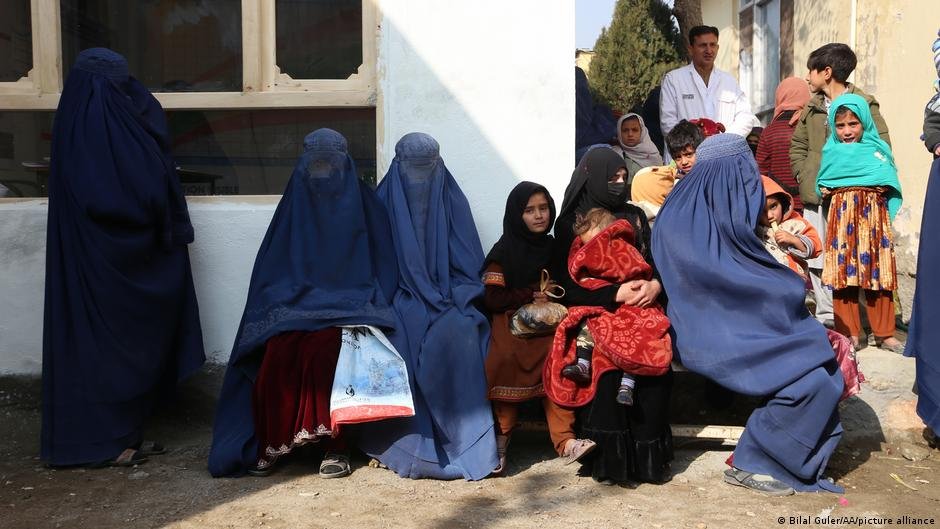Germany is inching closer to deporting Afghan criminals to their home country, confirming that a delegation of officials has met with Taliban authorities in Kabul. Experts believe that this could be the beginning of a normalizing of ties with the Islamist regime, and that other EU countries could follow Germany's lead.
The German government has confirmed that representatives of the Federal Ministry of the Interior have been negotiating directly with Taliban leaders in Afghanistan about the deportation of criminal Afghans living in Germany.
A spokeswoman for the Interior Ministry confirmed that ministry staff had been in Kabul for "technical talks" recently, following earlier media speculation, the news agency dpa reported on October 5.

Federal Interior Minister Alexander Dobrindt had recently announced that talks with the Islamist Taliban government of the country would be taking place, without sharing more information at the time.
Dobrindt argued that, as part of gaining better control over immigration issues in Germany, Berlin should be allowed to send back criminals to their home countries.
In the case of the Taliban-run Afghanistan, the interior minister said that if necessary, direct negotiations with the internationally isolated Taliban to this end were justified.
Read AlsoGermany wants to deport migrants 'regularly and systematically'
Media reports: up to two German representatives visit Kabul
According to information shared on Germany's public broadcaster ARD, at least one high-ranking representative of the Federal Ministry of the Interior had visited Kabul last week to discuss the next steps in repatriating Afghan criminals in Germany.
According to ARD, the exchange between the two sides had "gone well and positively" from the Afghan point of view.
The weekly news magazine Der Spiegel meanwhile reported that the Interior Ministry was in fact close to concluding a deportation deal with the Taliban, having sent two representatives to Kabul in early October, citing its own sources.
This alleged deal builds on a basic agreement that had been reached with the Taliban government last month.

Read AlsoGermany allows Taliban envoys to facilitate deportations
Taliban talks viewed critically in Germany
Such talks with the Taliban are regarded as highly controversial, as the German government officially refuses to have diplomatic relations with the Taliban, who came back to power in Afghanistan via a violent takeover in August 2021.
Opposition parties in the Bundestag, Germany's lower house of Parliament, have highlighted their view that entering any such deals with the Taliban would make Germany more dependent on the radical Islamist regime of the country.
Since the Taliban returned to power, there have only been two deportation flights from Germany to the Central Asian country so far, with the most recent one transporting 81 Afghans.
The flights were facilitated by the government of Qatar, but if Dobrindt's deal goes according to plan, deportation flights could occur more frequently, and without the help of such a third party.
The Islamist regime is internationally isolated, especially in the West, as most countries refuse to accept the legitimacy of their leadership on account of their disregard for human rights -- especially women's rights.
Read AlsoGermany: Afghan women and girls almost guaranteed to receive asylum
A beneficial deal for both parties?
Some experts believe, however, that the growing sense of rapprochement with the Taliban could help improve the human rights situation in Afghanistan.
Conrad Schetter, the director of the Bonn International Centre of Conflict Studies (BICC), told InfoMigrants that the federal government could gain some leverage this way "to openly address the Taliban's inhumane policies, especially their discriminatory policies toward women, and thus to urge the Taliban to change course."
"I think that such deportation flights can serve both sides. The federal government can say that it is taking action and deporting refugees who have committed crimes. (…) The Taliban hope that this can lead to a gradual normalization of their relationship with Western countries, ultimately resulting in international recognition of their Islamic emirate," Schetter stressed.
"It is also important that representatives of the German government receive guarantees that the Taliban will respect human rights standards for the deported Afghans," he added.

Read AlsoAfghanistan: IOM sounds alarm over returning migrants
More deportations could follow
There are questions, however, on just how many people can be deported under the scheme, as the rate of criminal and delinquent Afghans in Germany ultimately is finite; Interior Minister Dobrindt had said that "initially" only criminals would be deported.
"This wording is noteworthy, as an extension of deportations to other refugees cannot be ruled out," says Schetter.
"I assume that in the future, large numbers of refugees who are required to leave the country will also be deported. The pressure fueled by right-wing populists in Germany is immense."
At this point, mass deportations of Afghan migrants and refugees are only carried out by Afghanistan's direct neighbors -- Iran and Pakistan -- as well as, to a lesser extent, Turkey.
Millions of Afghans have sought protection in those countries not only in recent years but in the course of the past decades, with many being born in their adoptive homes.
But if Germany and other Western governments continue to gradually normalize their relations with the Taliban, other countries might decide to strike similar agreements in the future.
Schetter told InfoMigrants that he can "well imagine that other European countries, such as the Netherlands, Denmark, or Austria, which also want to deport Afghans, will follow Germany's example."
Read AlsoThe reality for an Afghan refugee family in Germany
Mehrnoosh Entezari contributed to this article
